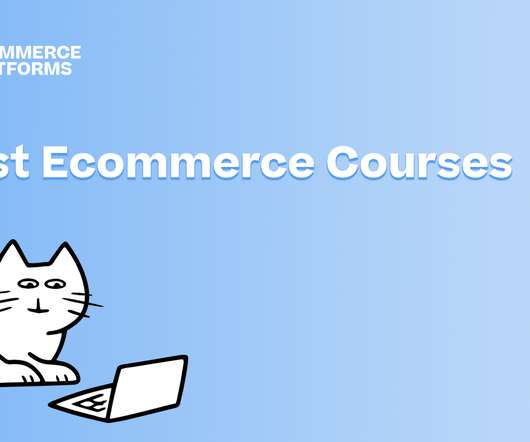The Best Ecommerce Courses for Business Owners
Ecommerce Platforms
OCTOBER 24, 2022
The chances are you’re keen to start your new ecommerce store as quickly as possible. If you already have a lot of retail and online selling knowledge, you might be able to dive in without any initial guidance. Ultimately, the ecommerce space is a competitive one, filled with challenges to address. Go to the top.
.png)












Let's personalize your content